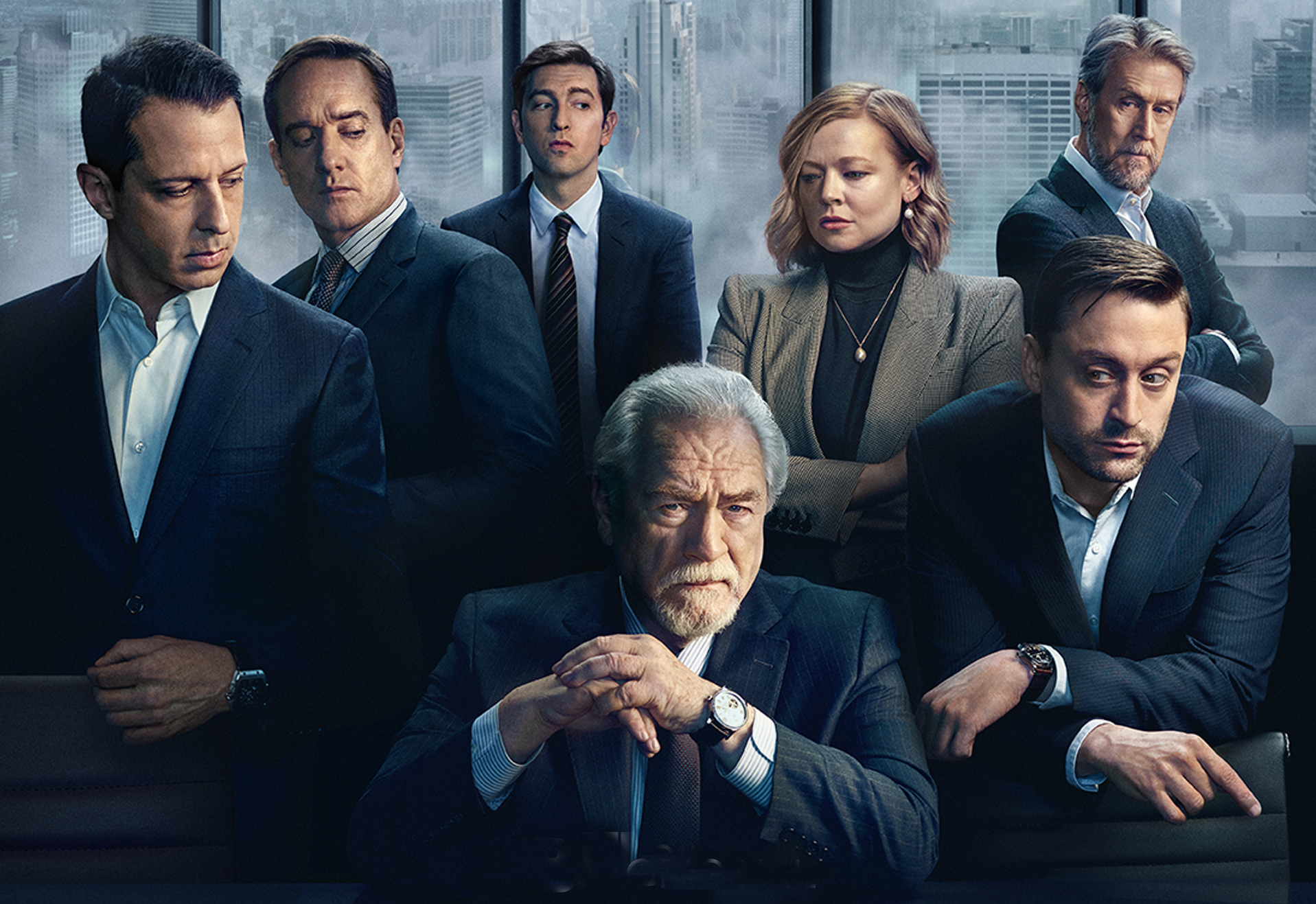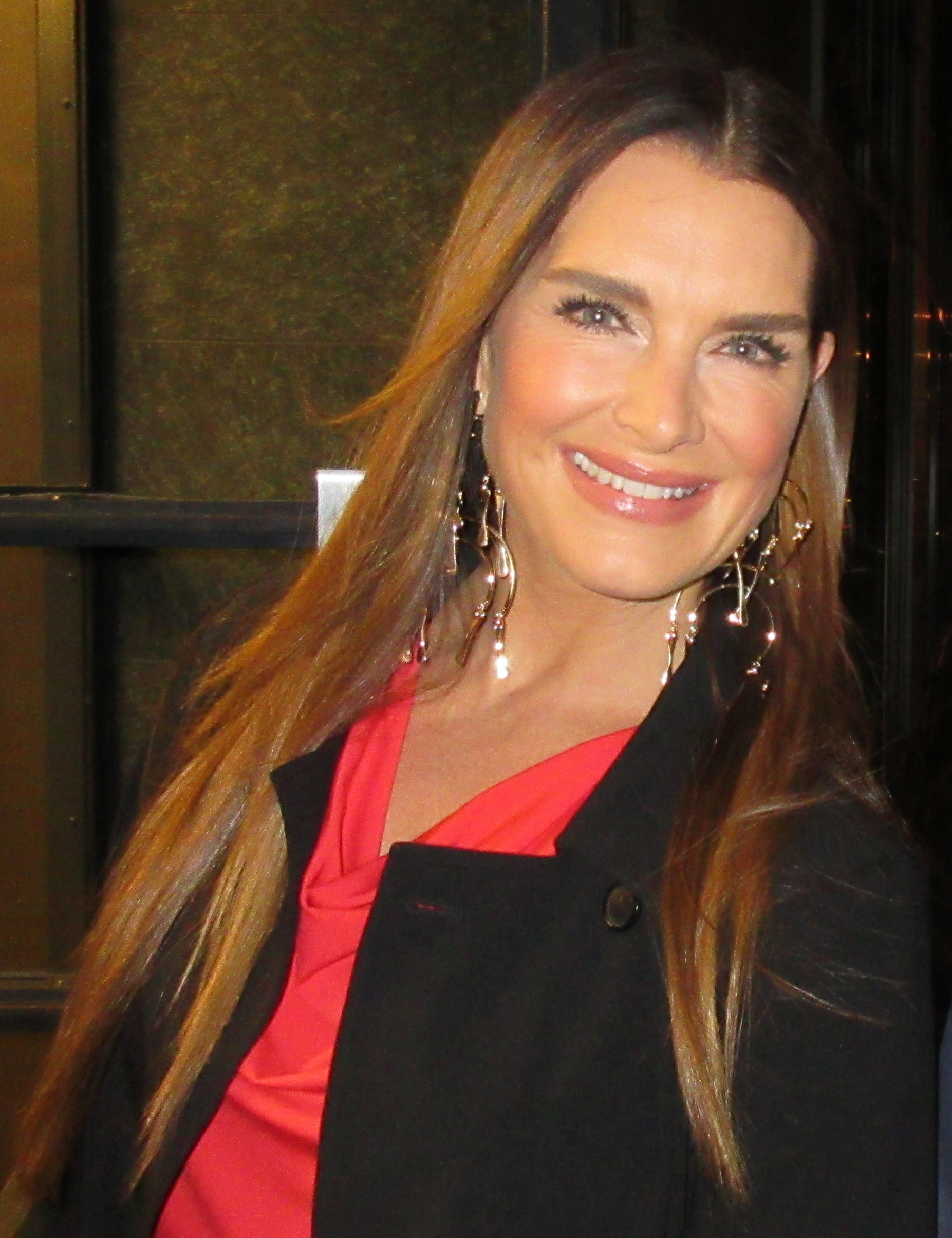
“Succession” wasn’t just a television show; it was a cultural phenomenon, a weekly dissection of power, family, and the corrosive influence of wealth that captivated audiences worldwide. For four seasons, Jesse Armstrong’s critically acclaimed HBO series masterfully blended black comedy with profound tragedy, offering a sophisticated yet brutal look at the inner workings of an empire and the damaged souls vying to inherit it. Its sharp writing, impeccable performances, and bold narrative choices consistently sparked debate, earning it a place among the pantheon of television greats.
Yet, for all its meticulous crafting and critical adoration, “Succession” was never one to shy away from narrative decisions that challenged its audience, sometimes even provoking strong reactions from the very actors who breathed life into its complex characters. These pivotal moments, whether carefully plotted long in advance or designed to upend expectations, became focal points for discussion, proving that the series was always more interested in the uncomfortable truth than in easy gratification. It consistently defied simple categorization, maintaining its hold on the cultural zeitgeist right to its controversial, yet arguably inevitable, conclusion.
As senior media editors, we appreciate how deeply a show can penetrate the cultural consciousness by engaging with its audience on a fundamental level, often through its most contentious narrative turns. “Succession” achieved this repeatedly, offering a narrative landscape rich with calculated gambits, unexpected twists, and character beats that resonated with a rare authenticity. Here, we delve into some of the most talked-about plot points and creative decisions that defined its journey, exploring their deeper implications and the critical conversations they ignited.
1. **Logan Roy’s ‘Early’ Demise and Brian Cox’s Candid Reaction**One of the most seismic events in recent television history, Logan Roy’s sudden and unexpected death in the third episode of the fourth and final season, shattered audience expectations and fundamentally altered the show’s trajectory. After three seasons of near misses and repelled challenges, the patriarch’s heart attack on a private jet felt both abrupt and shockingly real, immediately stripping the show of its central antagonist and re-framing the entire premise of succession from a speculative future to an immediate, brutal reality.
Brian Cox, the inimitable actor behind Logan Roy, openly admitted to feeling a profound sense of personal displacement regarding his character’s exit. He told the BBC, “It was an odd feeling,” and that he “looked on it, wrongly … as a form of rejection.” Cox felt the death came “too early,” suggesting his character could have been killed off in the fifth or sixth episode. This candid admission underscored the unique bond an actor develops with a role of such magnitude, particularly one that had been the gravitational center of a global phenomenon.
Despite his personal feelings, Cox was quick to praise Jesse Armstrong’s bold creative vision. “It was bold of Jesse and that’s where Jesse’s great. There’s no question, he’s a writing genius,” Cox stated, adding, “He did it brilliantly. It was a brilliant scene, the whole act.” This highlights the often-complex interplay between an actor’s emotional connection to their character and their professional admiration for the writer’s narrative choices, even when those choices are personally challenging. It was a masterstroke that propelled the final season into uncharted, high-stakes territory, but not without leaving its mark on the man who embodied the media titan.
Adding another fascinating layer to his reaction, Cox also revealed that he chose not to watch Logan’s final scene in the series. “I didn’t watch it, because I have no interest in watching my own death, that will come soon enough,” he remarked. This highly personal decision offers a glimpse into the psychological impact of inhabiting such an iconic role, and the unique way actors process the end of their character’s journey, especially one as monumentally significant as Logan Roy.
2. **Logan’s Lazarus Act in the Pilot: The Stalled Succession**Before his definitive exit, Logan Roy’s initial brush with death in the very first episode established a pattern that would define much of the series. The pilot opened with Logan suffering a “near-fatal medical crisis,” an event designed to be “the inciting incident for intrafamilial power struggles.” This immediate threat to the patriarch’s health dangled the promise of an imminent changing of the guard, setting up the central conflict from the outset.
However, in a narrative twist that would prove foundational to the show’s structure, Logan, like Lazarus, shook off the ailment. Instead of dying or being permanently incapacitated, he recovered, effectively spending “several more seasons stymying the plot.” This decision, while arguably frustrating for viewers eager for a resolution, was a deliberate creative choice that shifted the series from a potential miniseries with a swift resolution to an ongoing drama about the prolonged battle for control.
This early creative gambit meant that the “Succession” viewers would become accustomed to a narrative where ultimate resolution was continually deferred. It signaled that the series was not merely about who would take over Waystar RoyCo, but *how* the struggle for power would corrupt, define, and ultimately trap the Roy children. It set the precedent for Logan’s almost god-like ability to regain control, making every subsequent challenge from his offspring feel like an exercise in futility, thus solidifying the show’s infamous ‘loop.’

3. **The ‘Succession Loop’ and Perceived Narrative Stagnation**For a significant portion of its run, “Succession” developed a reputation for being caught in a “frustrating loop.” This was a core critique, as the series seemed to return to a familiar dynamic at the end of each season: “the status quo is never quite disrupted, and at the end of each season the board is reset.” This iterative quality sparked considerable debate among critics and audiences alike, with some finding it a brilliant character study and others yearning for more definitive plot progression.
This narrative pattern meant that “for three seasons, ‘Succession’ avoided settling this question” of who would inherit Logan’s empire. Each season would present formidable challenges – hostile takeovers, corporate scandals, bids for rival networks – only for “Logan repelling some challenge from his kids, and the next opened with some combination of kids scheming to oust the old man and disrupt the nervy truce established at the end of the previous one.” This deliberate narrative cycle allowed for deep dives into character neuroses and family dynamics but also led to a sense of dramatic inertia.
The iterative quality even led Naomi Fry, in a review of Season 3, to wonder “whether it might be the ‘best sitcom’ on TV.” This observation, while perhaps hyperbolic, cleverly highlighted the repetitive, almost formulaic nature of the Roy children’s power struggles, which often played out with comedic futility. While some found this frustrating, it was a deliberate choice that underscored the futility of challenging Logan’s unshakeable grip and the inescapable psychological bonds within the family, deepening the audience’s understanding of their entrapment rather than moving the plot forward in a conventional sense.
4. **Kendall’s Relentless Cycles of Rebellion and Failure**Kendall Roy, portrayed with raw intensity by Jeremy Strong, was often positioned as Logan’s most obvious successor, the “heir apparent” groomed to take over. Yet, his narrative arc became defined by repeated attempts to seize power, followed by spectacular failures, often stemming from his own self-destructive tendencies or Logan’s oppressive parenting. These cycles of rebellion and subsequent collapse formed a controversial, yet compelling, core of the show’s character-driven drama.
We witnessed Kendall’s manic backroom dealings in Season 1, “culminating in a fantastic sequence of him literally sprinting while trying to manage a coup.” These moments were thrilling, showcasing his flashes of brilliance, but they invariably led to devastating defeats. His journey was a painful dance of ambition and inadequacy, punctuated by his struggles with substance abuse, which Logan often exploited to maintain control and further sideline him from true power.
One of the most poignant examples of Kendall’s cyclical suffering was his “public flogging” in Season 2, a humiliating spectacle orchestrated by his father to bring him back into the family fold after a failed rebellion. Later, he was “set up to take the fall for the coverup of ual abuse in the company’s cruises division.” These instances highlighted the transactional nature of his relationship with Logan, where his loyalty and suffering were commodities. This constant push and pull, while expertly performed, often left viewers wondering if Kendall would ever truly break free, making his journey a continuous source of both frustration and profound empathy.

5. **The Infamous ‘Boar on the Floor’ Game**Among the many displays of Logan Roy’s casual cruelty and absolute power, the “Boar on the Floor” scene from Season 2 stands out as a particularly controversial, unforgettable, and darkly humorous moment. It wasn’t just a plot point; it was a character-defining tableau, illustrating the depths of Logan’s sadism and the humiliating subservience of those in his orbit.
The scene involved Logan forcing his subordinates, including Tom Wambsgans and Cousin Greg, to crawl on all fours and oink for sausages thrown onto the floor during a country-house parlor game. This grotesque spectacle, described as having “superb, almost Beckettian humor,” served as a brutal demonstration of the “vapidity and moral corruption of the very rich,” a central theme of “Succession” and a point of much critical discussion.
“Boar on the Floor” became immediate shorthand for the transactional and dehumanizing relationships prevalent within Waystar RoyCo. It underscored Logan’s absolute dominance, his contempt for perceived weakness, and his willingness to strip individuals of their dignity for his amusement. The scene was more than just shock value; it was a potent piece of social commentary, illustrating how power, when unchecked, can create a chilling environment where human beings are reduced to mere playthings, forever marking the show with its unique brand of satirical savagery.
Read more about: Nostalgia Bait or Nightmare Fuel? 14 Popular ’90s Movies That Just Didn’t Age Well

6. **Cousin Greg’s Bumbling, Yet Strategic, Ascent**Nicholas Braun’s portrayal of Greg Hirsch, Logan’s grandnephew, began with him as an awkward, bumbling outsider, utterly “unfamiliar with the rough terrain he must navigate to win Logan over.” His journey from a largely incompetent, morally conflicted presence to a surprisingly resilient, albeit still ethically compromised, player within Waystar RoyCo, marked one of the show’s more subtly controversial and often-debated character arcs.
Greg’s “bumbling congressional testimony” was a prime example of his accidental competence, or perhaps, his ability to deflect and survive under pressure. Despite his frequent mishaps, he possessed an uncanny knack for being in the right place at the right time, or at least, for attaching himself to the right, or wrong, powerful figure. His “indentured” relationship with Tom Wambsgans was a key part of his development, showcasing his pragmatic adaptation to the Roy ecosystem, even if it meant being subjected to Tom’s own forms of bullying and manipulation.
The controversy surrounding Greg’s ascent lies in his questionable moral compass and seemingly unearned progression. Was he a naive bystander or a cunning opportunist? His character constantly challenged audience expectations of who deserved power and success in this cutthroat world. Greg’s ability to navigate the treacherous waters, often through sheer awkwardness and passive-aggressive maneuvering, made him a divisive figure—a moral vacuum for some, a mirror to society’s undeserved successes for others, ultimately leaving his true motivations open to complex interpretations.
Read more about: Nicholas Braun’s Legal Landscape: Unpacking the ‘Succession’ Star’s DUI Arrest, Defining Role, and Immediate Future

7. **Season 3’s Frustrating Return to the Status Quo**Season 3 of “Succession” raised the dramatic stakes significantly, presenting multiple plot lines that promised to finally disrupt the entrenched power dynamics. The season featured “an F.B.I. raid on Waystar, a complicated bid to acquire a rival network, and, most important, an attempt to sell the company itself.” These events, particularly the potential sale of the company, hinted at a definitive shift, an end to the iterative struggles that had defined the previous seasons.
However, in a move that resonated with the show’s established “loop” and proved deeply frustrating for many viewers, “in the end the season landed back where it began, with Logan holding the reins and his children scrambling and scheming.” Logan, with Tom’s crucial betrayal, outmaneuvered Kendall, Roman, and Shiv, weaponizing their mother against them to block their plan to prevent the company’s sale. This final blow left Roman “literally on the ground while a stunned Kendall and Shiv stared on,” a powerful image of their defeat.
This decision, while a masterclass in Logan’s unyielding grip on power and perfectly aligning with the show’s stated inspiration from plays like “Richard II” (about a man who refuses to give up power), deepened audience impatience. It highlighted the children’s repeated failures to truly depose their father, making their efforts feel futile. Yet, this narrative choice served a crucial purpose: it intensified the desire for resolution and made the subsequent shifts in the final season all the more impactful, demonstrating how “Succession” was unafraid to test its audience’s patience to serve its overarching thematic goals of endless, self-destructive ambition.

8. **The Roy Siblings’ Renewed Alliance and “The Hundred”**After the soul-crushing defeat of Season 3, where Logan masterfully outflanked his children by weaponizing their mother against them, the fourth and final season opens with a palpable shift in the Roy dynamics. This time, Kendall, Roman, and Shiv are pointedly absent from Logan’s birthday festivities, choosing instead to forge their own path. This moment marked a significant departure from their usual pattern of circling back to their father’s orbit, hinting at a new, more unified front that promised a different kind of power struggle.
Camped out in “another blandly gorgeous compound,” the siblings began plotting their own venture: a “disruptor” news platform called “The Hundred.” Kendall enthusiastically described it as “Substack meets MasterClass meets The Economist meets The New Yorker,” a vision of a media empire free from Logan’s shadow. This entrepreneurial endeavor, though fraught with their usual barbed exchanges and puerile jabs — Roman telling Shiv, “Your face is giving me a headache” — demonstrated a rare, if fragile, closeness and ease among them, suggesting that their collective trauma might finally be binding them together rather than tearing them apart.
This united front, however, was swiftly challenged. A call from Tom Wambsgans to Shiv served as a sharp reminder of the “ugly business” from the Season 3 finale, particularly Tom’s betrayal that allowed Logan to thwart their plans. Yet, instead of fracturing, this new information about Logan’s renewed efforts to acquire a rival network galvanized them. They decided to vie against their father one more time, making a competing offer, signaling that the ‘Succession Loop’ might finally be breaking, or at least, operating on a different, more unified plane. This initial alignment provided a thrilling, if ultimately temporary, hope for a different outcome for the Roy children.

9. **Logan’s Meditative Resignation and Final ‘Suspicions’**Amidst the renewed scheming of his children, Logan Roy himself underwent a subtle but profound transformation in the final season. Gone, for a moment, was the raging patriarch; instead, audiences witnessed an uncharacteristically resigned and almost wistful Logan. During a walk with his bodyguard, whom he affectionately called his “best pal,” Logan found himself in a Manhattan diner, delivering a monologue that became one of the season’s most talked-about moments.
His reflection began with a lofty non sequitur, “What are . . . people? They’re economic units. I’m a hundred feet tall. These people are pygmies. But together they form a market.” This initial thought quickly segued into a more personal, melancholic rumination on his life and legacy: “Everything I try to do, people turn against me. Nothing tastes like it used to, does it? Nothing’s the same as it was.” Brian Cox’s delivery of this scene was hailed as “one of the finest bits of television acting,” showcasing a rare vulnerability in a character defined by his impenetrable facade.
The monologue culminated with Logan asking his security pal if he thought there was “something after ‘all this.’” When met with an uncertain response, Logan delivered one of the show’s most indelible lines: “That’s it. We can’t know. But I’ve got my suspicions. I’ve got my ing suspicions.” This final, defiant assertion, even when contemplating the greatest mystery of existence, underscored Logan’s nature as a “leery operator,” always convinced of his superior instincts, even in the face of the unknown. It was a moment that redefined the character, showing a glimpse of the man behind the titan, grappling with mortality just before his abrupt exit.
10. **The Unforeseen Path of Connor Roy: From Buffoonery to Pathos**Connor Roy, Logan’s often-forgotten eldest child, consistently served as the series’ primary source of buffoonish comic relief. His delusions of grandeur, particularly his quixotic presidential campaign, and his unconventional relationship with Willa, initially painted him as a character largely removed from the intense corporate machinations and emotional depth of his siblings. His role seemed fixed as the eccentric, wealthy outsider, a figure of amusement rather than genuine pathos.
However, the final season, with its “more generous palette of feeling and situation,” allowed Connor’s character to evolve beyond mere caricature. Suddenly, the narrative invited audiences to view him with a deeper understanding, acknowledging the pain of being Logan’s “forgotten” child. His interactions, particularly after Logan’s death, revealed a more complex individual grappling with loss and his own identity outside his father’s monumental shadow, even as his political aspirations continued to hover on the fringes of absurdity.
This shift meant that Connor became “a subject of pathos rather than merely of buffoonish comic relief.” The undercurrent of sadness that always accompanied his grand pronouncements and overlooked existence came to the forefront, allowing viewers to empathize with his unique brand of loneliness and the profound impact of a lifetime of paternal neglect. It was a subtle yet crucial transformation, demonstrating the show’s ability to imbue even its most seemingly one-dimensional characters with layers of unexpected emotional resonance, especially as the narrative hurtled towards its conclusion.
11. **Roman’s Unexpected Stirrings of Empathy and Vulnerability**Roman Roy, portrayed by Kieran Culkin with a signature blend of snotty sarcasm and immature bravado, was long characterized by his cynical worldview and a desperate need for his father’s approval. His narrative journey was marked by a constant oscillation between seeking power and sabotaging his own efforts, often through inappropriate jokes or a perceived lack of seriousness. For much of the series, Roman’s emotional range seemed limited to defensive aggression or fleeting moments of petulant vulnerability.
Yet, the climactic final season afforded Roman “modes other than snotty sarcasm.” The immense weight of Logan’s death, coupled with the escalating stakes of the Waystar RoyCo sale, began to chip away at his carefully constructed facade. We saw glimpses of genuine distress, a raw, unfiltered pain that transcended his usual comedic or offensive quips. He exhibited “stirrings of concern for others,” a remarkable development for a character who had often appeared emotionally stunted.
These moments of empathy, however brief, were pivotal. They highlighted the underlying trauma that had always fueled his cynicism and demonstrated the profound impact of his father’s demanding and often abusive parenting. Roman’s evolution, particularly in how he navigated the emotional fallout of the family’s ultimate fate, underscored the nuanced character work that defined “Succession.” It allowed audiences to see the fragile boy beneath the “edgelord” persona, revealing a depth of feeling that made his ultimate, albeit ambiguous, resolution all the more compelling and tragic.
12. **Shiv’s Pivotal Betrayal in the Finale: A Complex Choice**The “Succession” finale culminated in a dramatic power struggle, with the fate of Waystar RoyCo hanging in the balance, a struggle Shiv Roy had been central to from the beginning. After her father’s death, she had aligned with her brothers Kendall and Roman, forming a pact to prevent the sale of the company to Lukas Matsson’s GoJo. This seemingly unified front, however, shattered in the final moments, with Shiv casting the deciding vote to betray her brothers, allowing the sale to proceed.
This act of betrayal, while devastating for Kendall and Roman, was portrayed not as a simple choice of allegiances but as a deeply complex, almost instinctual reaction. Matthew Macfadyen, who plays Tom Wambsgans, offered insight into Shiv’s decision, suggesting, “Maybe she doesn’t choose Tom over her brothers. Maybe she just can’t stomach her big brother. It’s not a binary choice. She just looks at Kendall and thinks, ‘I can’t.’” This perspective highlights Shiv’s internal conflict and the deep-seated resentments and distrust that ran through the Roy family, suggesting her decision was less about supporting Tom and more about her inability to envision Kendall as CEO.
The controversial outcome positioned Shiv as a pivotal figure, whose choice directly led to the dissolution of the Waystar empire as they knew it and, ironically, paved the way for her estranged husband, Tom, to become CEO. It was a brutal reminder of the transactional nature of their relationships and the impossibility of true familial unity in a world governed by power and self-interest. Shiv’s decision, born out of a tangled web of ambition, frustration, and deeply ingrained family dynamics, ensured that the series ended not with a clear victor among the siblings, but with a stark, morally ambiguous resolution.
13. **Tom Wambsgans’ Shocking Ascent to CEO**Perhaps the most stunning and controversial resolution of the entire series was the ascension of Tom Wambsgans to the position of CEO of Waystar RoyCo, a fate few, if any, viewers could have predicted. From his origins as a Minnesota outsider desperately trying to ingratiate himself into the Roy family’s inner circle, often dismissed and bullied by Logan and his children, Tom’s trajectory was one of slow, pragmatic, and ethically questionable maneuvering.
The series creator, Jesse Armstrong, revealed that “the idea of Tom being the eventual successor, that had been something that I thought was the right ending for quite a while now.” This insight suggests that Tom’s path was a deliberate, long-game narrative choice, rather than an improvised twist. Armstrong further elaborated, noting that “Even though he’s not exactly the most powerful monarch you’ll ever meet – his power comes from Matsson. Those figures that drift upwards and make themselves amenable to powerful people are around.” This explains Tom’s unique brand of survival: his ability to be amenable, to adapt, and to strategically align himself with the true centers of power.
Tom’s symbolic readiness for power was even hinted at in an earlier season. Fans pointed to a scene in Season 2 where Tom, during a yacht summit, ate “a piece of chicken off Logan’s plate … without asking.” For many, this seemingly innocuous act “symbolised Tom being able to stand up to Logan in a way that none of his children were able to.” It was a subtle, yet profound, indication of his quiet audacity and his willingness to transgress boundaries, a quality that ultimately propelled him to the top, albeit as a figurehead for Matsson, leaving audiences to grapple with the discomfort of such an “undeserving” victor.
14. **The Chilling Final Embrace: Tom and Shiv’s Ambiguous Future**The dramatic culmination of the Waystar RoyCo sale left Tom Wambsgans in the improbable position of CEO, and Shiv Roy as the wife of the new corporate head, yet adrift from her brothers. The final moments of the series solidified their peculiar, transactional bond with a scene that resonated with chilling ambiguity. Following the deal, Tom and Shiv leave the building together, sitting silently in the backseat of a car.
Matthew Macfadyen described the scene with an evocative stage direction from Jesse Armstrong, who “talks about two bombs being transported.” This powerful imagery captures the inherent instability and danger within their relationship, suggesting that despite their marital status and Tom’s newfound power, their future together remains explosive and uncertain. The silence in the car spoke volumes about the emotional chasm between them, a relationship “very chilly and weird and not triumphant on Tom’s part at all.”
The scene’s climax involved Tom extending an open hand, which Shiv then placed her hand upon, “careful not to interlace fingers.” This non-interlaced touch became a symbol of their compromised connection – a formal acknowledgement of their intertwined fates, perhaps, but devoid of genuine intimacy or warmth. It perfectly encapsulated the show’s overarching theme of transactional relationships, even within the most personal bonds. Their future, as Macfadyen aptly put it, remained an open question: “They’re going to go home and who knows?” This ambiguous ending underscored the pervasive sense of entrapment and the enduring, destructive legacy of the Roy family’s pursuit of power, leaving audiences with a lingering sense of unease rather than neat resolution.
The raw, unflinching portrayal of ambition’s cost and the inescapable bonds of family, even when toxic, cemented “Succession” as a masterpiece of contemporary television. It consistently pushed boundaries, challenged expectations, and delivered narrative choices that, while often controversial, ultimately served to illuminate the darker corners of power and human nature. As we reflect on these pivotal plot points, it becomes clear that the series’ genius lay not in offering easy answers or satisfying resolutions, but in its commitment to a brutal, unvarnished truth about the world it so brilliantly satirized.











